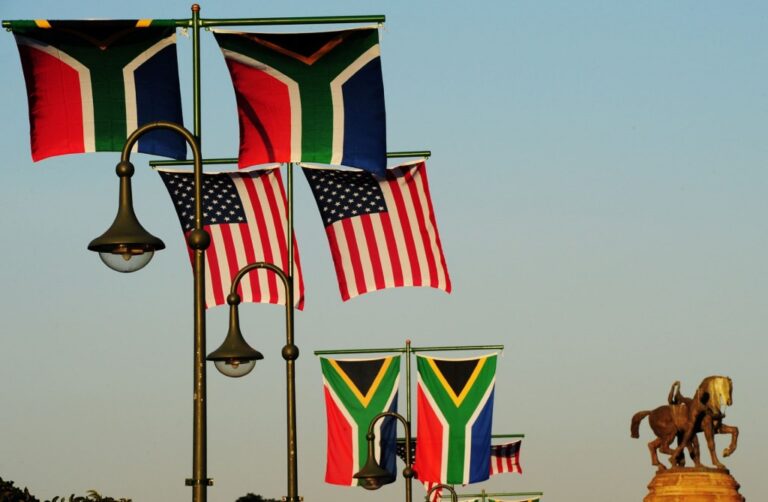You can also listen to this podcast on iono.fm here.
Download the free LiSTN audio app on Google Play, Apple or here.
JEREMY MAGGS: Now the general sense is that South Africa is going to have to play its diplomatic A game ahead of the upcoming Agoa [African Growth and Opportunity Act] summit. The event gets underway this week amid, as you know, tensions between China and the United States.
Joining me now, chief executive officer of XA Global Trade Advisors, Donald MacKay, a very warm welcome to you. Just how high are the stakes for South Africa?
DONALD MACKAY: Ja, they’re important for us to get right. The US is a very important trading partner. I think we’re probably okay in the short term with Agoa. Just the fact that they’ve still agreed to host the forum here is a good sign.
But certainly, the US is important, and we don’t want to put a foot wrong.
JEREMY MAGGS: Baseline, what do we need to achieve?
DONALD MACKAY: Ja, I think we need to get Agoa extended beyond where it is so that when it ends at the end of next year, it hopefully gets extended by at least five years, and I think that’s an important thing to argue for.
But really, I think our future lies in moving beyond Agoa into a proper free trade agreement with the US, which would give us better access and I think just deliver greater economic value than Agoa has.
JEREMY MAGGS: Do you think it’s going to be tense in the room?
DONALD MACKAY: I don’t actually think so. I would guess that the very professional politicians will keep a happy face on from both sides. But that doesn’t, of course, mean that there isn’t tension, I doubt it would be visible. So no, I think it probably won’t be.
JEREMY MAGGS: I made the point about having to play our diplomatic A game. In terms of South Africa’s non-alignment in the Ukraine war, surely that’s going to be factored into the whole process.
DONALD MACKAY: Ja, I think it is, but I also think, for whatever reason, South Africa has largely removed most of the heat out of that particular problem. I think, however, what does concern me is what is not being said. So what is overtly being said might be one thing, but I’m not sure that that kind of deep down inside things that the US is still particularly happy with us no matter what they say, and that that might still reflect in poorer levels of investment than we would like to see, and possibly just a more difficult trading relationship than it needs to be.
JEREMY MAGGS: What do you think the things are that are not being said?
DONALD MACKAY: Well, I think of course the Israel-Hamas issue is not trivial either, and with the US being very strongly aligned with Israel, I’m not sure if that features, and if it does feature, how that will play out.
But I think on the unsaid things, I’m still not sure that the US buys South Africa’s non-aligned stance, despite what they say, we really do need the US as both a trade and, probably more importantly, as an ongoing investment partner.
If the US is not actively selling South Africa, that may prove to be quite difficult. US capital has lots of places it can go, it certainly doesn’t have to come here. So we would need the help of the US government to help attract those investments to South Africa.
JEREMY MAGGS: And the recent expansion of the Brics [Brazil, Russia, India, China, and South Africa] grouping, is that going to influence South Africa’s position in any way?
DONALD MACKAY: I don’t think so, largely because I think Brics is mostly irrelevant, despite all the noise around it. I am a little bit concerned with some of the people that we’re now keeping company with in the expanded Brics group.
But in reality, Brics has done absolutely nothing, and I would think by adding the new countries, Brics will do even less.
JEREMY MAGGS: And obviously China is going to be the big proverbial elephant in the room.
DONALD MACKAY: Ja, that absolutely is the case. I guess South Africa needs to keep the focus on the US relationship and not let it wander off. But absolutely, the tensions between the US and China are certainly not helpful. South Africa very clearly has nailed its colours to the mast in support of the Chinese side of things. So that’s not helpful. But I would think for this session, hopefully that doesn’t make an appearance.
JEREMY MAGGS: I’m going to leave it there. As always, thank you very much indeed for that crisp analysis. Donald MacKay, chief executive officer of XA Global Trade Advisors.

